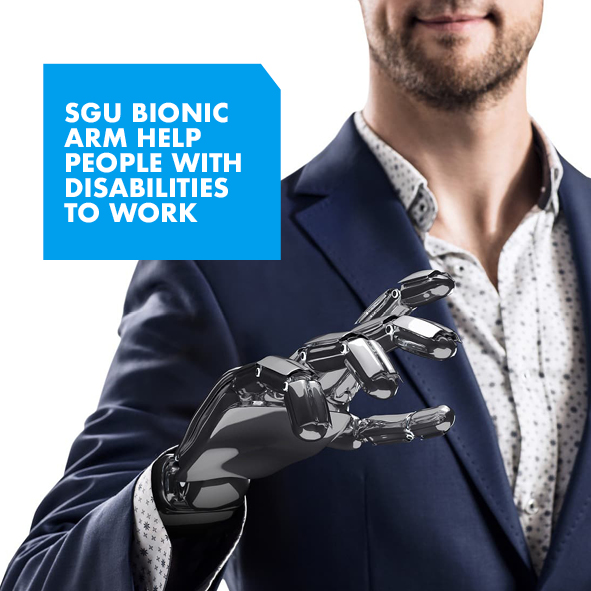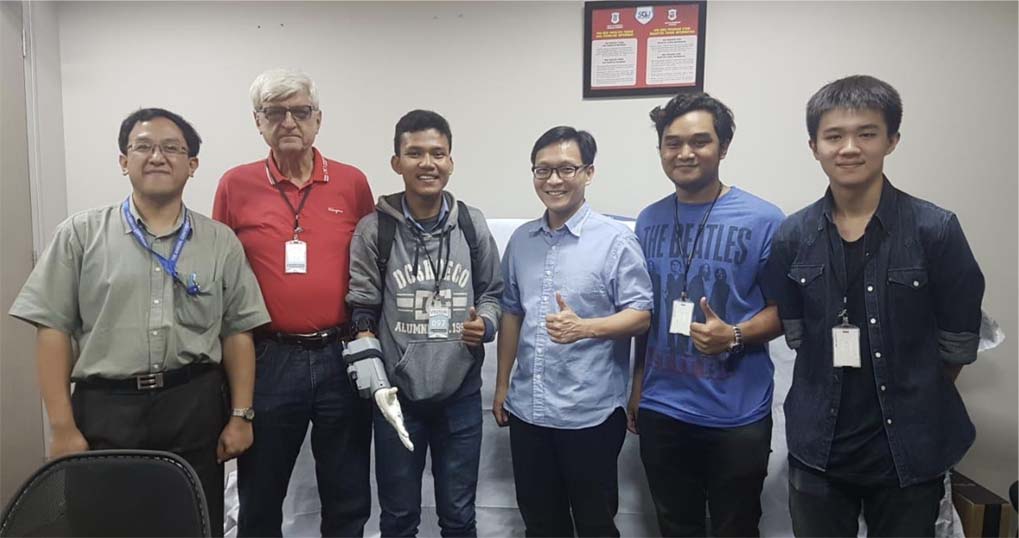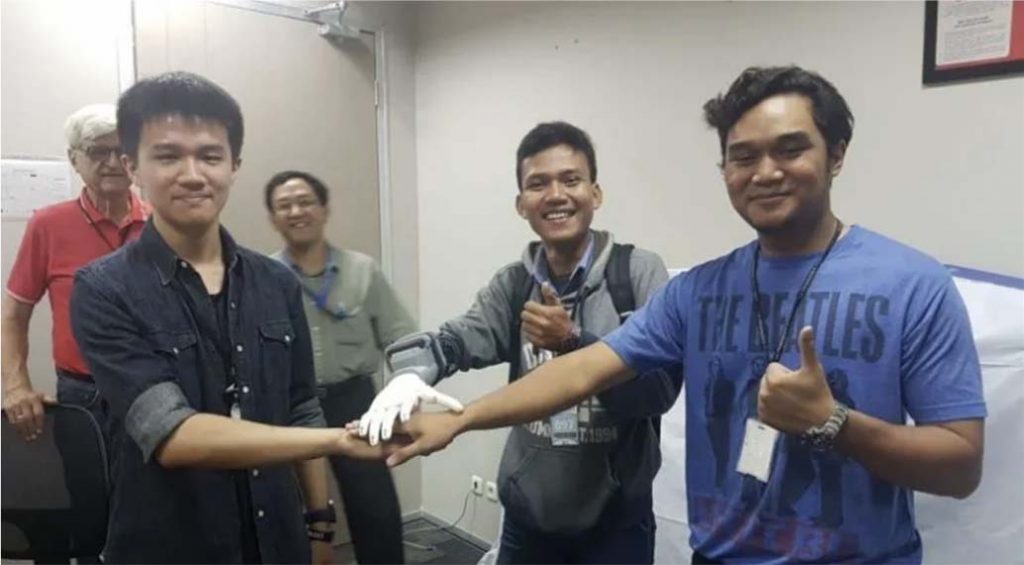
SGU Bionic Arm Help People with Disabilities to Work
SGU Bionic Arm Help People with Disabilities to Work
Have you ever heard about bionics? Bionics hands, arms, legs or whatever it is? If you have not knowing about it, let us get jump to this article.
The term ‘bionics’ was first used in the 1960s. It combines the prefix ‘bio’—meaning life—with the ‘nics’ of electronics. In August 1998 the world’s first bionic arm was fitted to Campbell Aird at the Princess Margaret Rose Hospital. The arm, the first to have a powered shoulder, elbow, wrist and fingers, was controlled by electronic micro-sensors (and presumably a bit of witchcraft) that sent pulses to the arm.
Today, researchers are striving to develop lighter, smaller, better‐controlled, more lifelike and affordable options. SGU also plays role in developing the modern bionics arms, the making of this robot hand was carried out as a thesis research project and student creativity program at SGU.
The bionic arm that made by SGU students and lecture is paired with a Myo Armband sensor that is able to detect nerves so that the bionic arm can grasp with the brain’s command through the muscle nerves that are still active.

The bionic arm project was sponsored by Rotary Club Indonesia, Helping Hands Foundation, SGU Community Service department, Wadi Chan 3D printing.
It is not easy and takes a long time, SGU students are lecturer start from the models and materials of the bionic hands to sensors and programming languages. Failure seems to have become friends. However, they admitted that he never gave up until he was finally able to finish the original Indonesian bionic hand.

This bionic hand project is held by Mechatronics Study Program under the Faculty of Engineering and Information Technology of Swiss German University. Mechatronic applications in everyday life are made to make human life easier as the bionic arm did.
Mechatronics engineering in Indonesia can be considered as a new study. There are so many opportunities that you can take by studying this knowledge. Studying Mechatronics in SGU is the best way to prepare yourself to be an excellent and well-balanced engineer. The standard of mechatronics teaching at Swiss German University uses a design-based learning and project-based learning system.
SGU Mechatronics Equips All Graduates with Siemens Mechatronic System Certification Program (SMSCP)
Siemens is now collaborating with SGU Mechatronics through teaching programs that meet the quality standards of Siemens’ work processes and summarized in the Siemens Mechatronic System Certification Program (SMSCP). This program is the most prestigious certification program in the world related to the initiation of the Industry 4.0 era. As one of the companies from Germany that plays a major role in the industry, Siemens certifies and partners with various educational institutions that have spread throughout the world. The training from the SMSCP is implemented in the curriculum for four years of studying at SGU.
SGU is the first institution in Indonesia to receive a level 2 SMSCP training program. Every student who studies mechatronics in SGU will be presented with a training method by studying an industrial tool module, then learning deeply about various components, then implementing these practical activities with theory.
About SGU
SWISS GERMAN UNIVERSITY (SGU) is an international university in Indonesia, was established in 2000 as a joint effort between Indonesia, Germany, Switzerland, and Austria. We are the pioneer in offering international curricula in Indonesia. Qualified students can graduate with a Double Degree from Indonesia and Germany, which SGU provides in cooperation with partner universities; surely a valuable tool for your future careers. Ever since its establishment, SGU has been dedicated to delivering quality education in line with international standards and aims to develop skilled professionals who meet the demands of the industry. In order to achieve its objectives, SGU offers quality-oriented learning through 12 Bachelor’s Degree Programs and 4 Master’s Degree Programs ranging from Engineering, Information Technology, and Business to Life Sciences and Social Sciences. Furthermore, with small class sizes, and with English as the medium of instruction, you can look forward to pursuing your tertiary education and degree with full confidence.
Curriculum Back